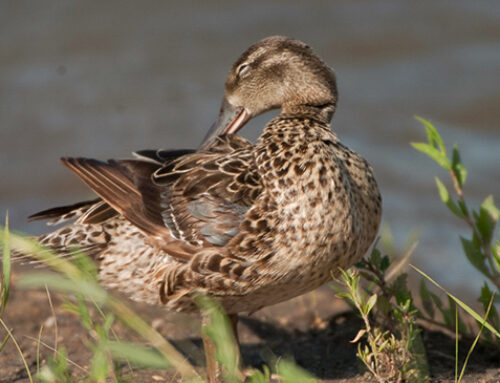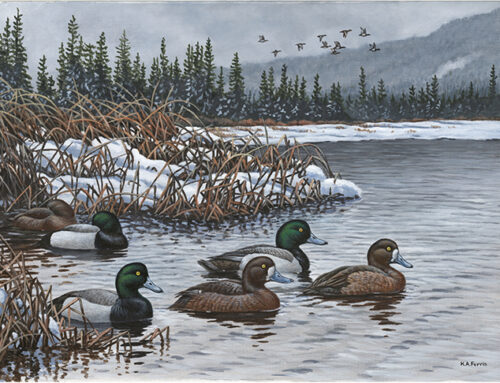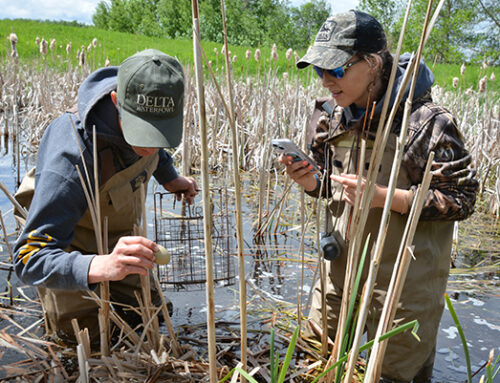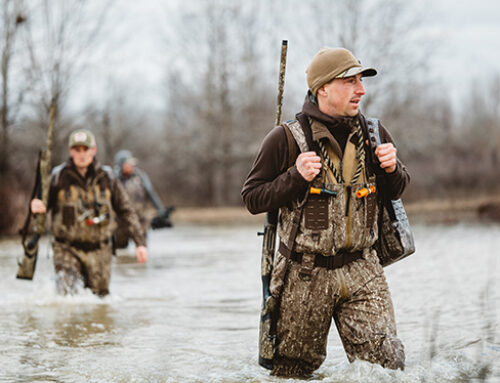Wildlife Habitat Canada Grants Support Delta Waterfowl’s HunteR3, Duck Production Efforts

A pair of grants from Wildlife Habitat Canada will boost Delta Waterfowl’s duck production and HunteR3 recruitment and advocacy programs throughout Canada. The grants — which WHC has generously increased over past years — are pending a final agreement between WHC and Environment Canada.
The first WHC grant of $121,410 will support The Duck Hunters Organization’s HunteR3 efforts to secure the future of waterfowl hunting across Canada. Delta’s HunteR3 programs include First Hunt, the largest waterfowl-specific hunter recruitment program in North America; the University Hunting Program, which educates non-hunting wildlife students about hunting’s role in conservation; and Defending the Hunt, which protects and expands waterfowl hunting opportunities.
Recent Defending the Hunt victories in Canada include increased Sunday hunting opportunities in New Brunswick, progress in the modernization of Canada’s waterfowl hunting regulations, reducing the game-bird hunting age to 10 in Alberta, retaining hunting access on Gravelly Bay in Ontario, and more.

“Approval of this grant once again proves WHC’s confidence in our efforts to help stem the decline of waterfowl hunters in Canada,” said Jim Fisher, Delta’s senior director of Canadian conservation and hunting policy. “HunteR3 programs in recruitment, access and advocacy are critical to the future of hunting in Canada. And we couldn’t achieve these successes without WHC’s support.”
The second WHC grant of $75,000 focuses on Delta’s duck production efforts, including maintenance of mallard-producing Hen Houses across Ontario, Manitoba, Saskatchewan and Alberta. Delta Hen Houses provide mallard hens with safer, more productive places to nest. In intensely farmed regions of prairie Canada, mallards using a Hen House are 12 times more likely to hatch a nest than those nesting in the grass cover. Overall, nest success in Hen Houses is 60 to 90 percent, compared with less than 10 percent for mallards nesting in the grass.
Delta Waterfowl maintains more than 8,500 Hen Houses in Canada and the United States.
“We greatly appreciate WHC’s longstanding and generous support of Delta Waterfowl’s mission,” Fisher said. “These grants will go far in benefitting ducks and duck hunters.”
WHC funding comes from sales of the Canadian Wildlife Habitat Conservation Stamp and Print, a.k.a. Canada’s “duck stamp.” WHC in turn offers grants to conserve, restore and enhance wildlife habitat, foster conservation leadership, promote conservation contributions of waterfowl hunters, and encourage waterfowl hunting participation.
The $8.50 stamp — required of anyone who hunts waterfowl in Canada — has not increased in price since 1991.
“Can you name another activity that hasn’t gone up in price in 30 years?” asked Fisher, an avid waterfowler. “The revenue the stamp generates is crucial in so many ways to the future of waterfowl hunting in Canada. We must look at increasing the price of these stamps.”
For more information about purchasing the Canadian Wildlife Habitat Conservation Stamp and Print, visit WHC.org. —Bill Miller






Great stuff! Jim Fisher and the WHC are bang on…it’s just too bad that the $75,000 WHC grant does not have an extra zero!